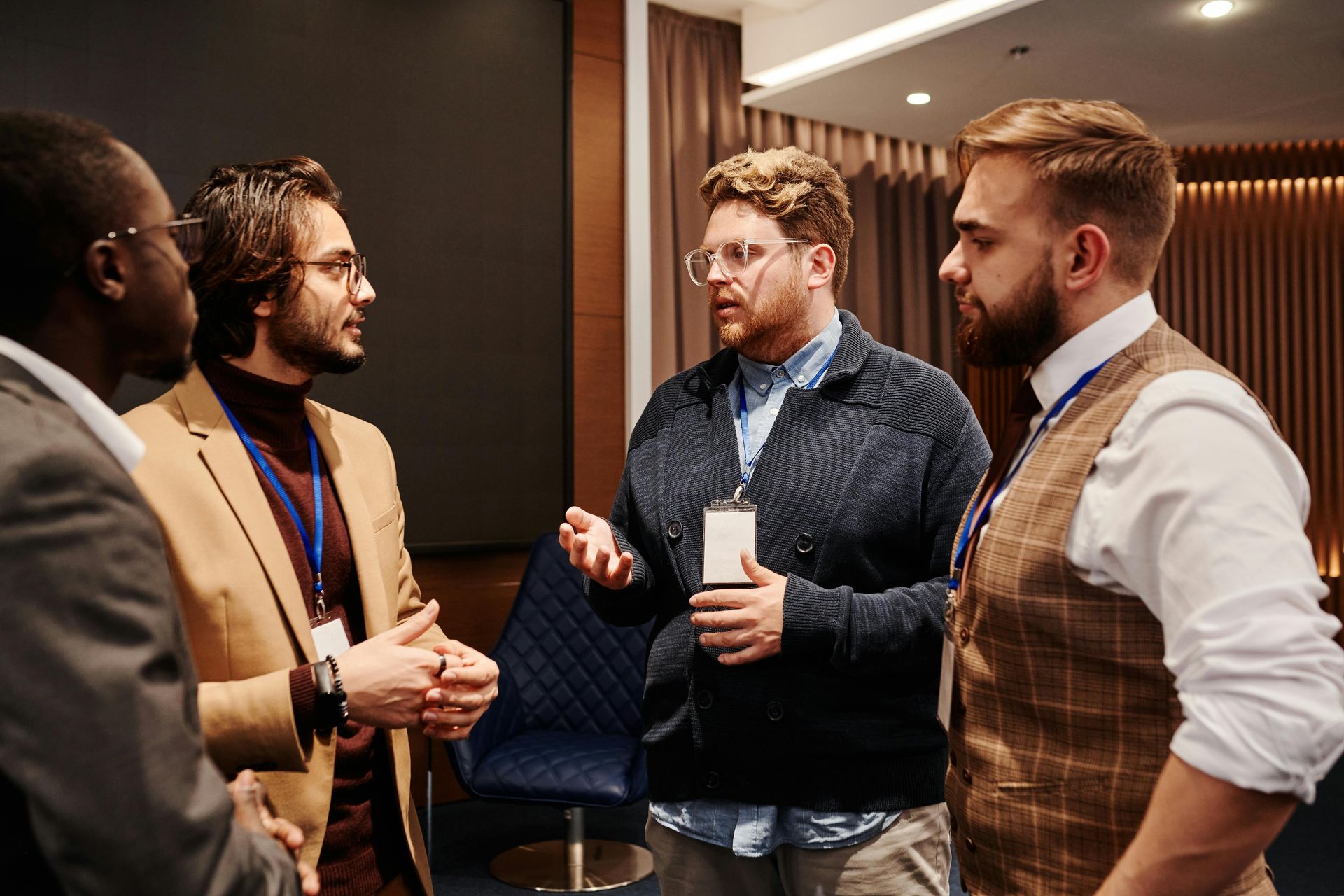In Praise of Institutional Neutrality in Academia
By Mark McNeilly
James G. Martin Center for Academic Renewal
April, 22 2024
If you are up on the latest trends in academia, you’ll know that “institutional neutrality” is in the news as more universities consider or adopt it. In my view, this is a good thing, as it maintains the role of the university as a neutral arena in which faculty and students can freely express and debate a wide range of viewpoints constructively rather than feel stifled when their university takes a public stance on a political or social issue. However, there is confusion within academia on what institutional neutrality means and how to implement it.
What Is Institutional Neutrality?
The free-speech organization FIRE (Foundation for Individual Rights and Expression) defines institutional neutrality as “the idea that colleges and universities should not, as institutions, take positions on social and political issues unless those issues ‘threaten the very mission of the university and its values of free inquiry.’ Instead, these discussions should be left to students and faculty.”
Most point to the adoption of the Kalven Statement by the University of Chicago in 1967 as the seminal moment for institutional neutrality. During the turbulent Sixties, when debate over the Vietnam War and civil rights rocked the United States, the Kalven Statement outlined the proper role of a university in terms of societal change:
The instrument of dissent and criticism is the individual faculty member or the individual student. The university is the home and sponsor of critics; it is not itself the critic. It is, to go back once again to the classic phrase, a community of scholars. To perform its mission in the society, a university must sustain an extraordinary environment of freedom of inquiry and maintain an independence from political fashions, passions, and pressures. A university, if it is to be true to its faith in intellectual inquiry, must embrace, be hospitable to, and encourage the widest diversity of views within its own community. It is a community but only for the limited, albeit great, purposes of teaching and research. It is not a club, it is not a trade association, it is not a lobby.
Since the university is a community only for these limited and distinctive purposes, it is a community which cannot take collective action on the issues of the day without endangering the conditions for its existence and effectiveness.
Why Universities Are Adopting Institutional Neutrality
For decades, Chicago was the sole university that had committed to institutional neutrality. That changed in 2022 when University of North Carolina-Chapel Hill trustees passed a resolution adopting institutional neutrality. That action raised the visibility of the subject in academia, as it ran counter to the usual flurry of political statements being made by university leaders on what seemed like every political and social event or issue. Nevertheless, there are a myriad of good reasons for university leaders to follow UNC’s lead and adopt institutional neutrality, as I laid out in this article on the Heterodox Academy blog.
The propensity to take stances on every issue was reexamined by higher-ed leaders after the October 7 Hamas terrorist attack that killed hundreds of Israeli civilians and the disastrous House hearings featuring the presidents of Harvard, UPenn, and MIT. Pushback from alumni, donors, and the public, combined with internal tensions on the left that fractured the usual ideological unity, led many college presidents and chancellors to reconsider the wisdom of continually making political statements. While there is still a long way to go, this list from FIRE of universities that have formally adopted the Kalven Statement shows progress.
To encourage more universities at this propitious moment, FIRE, Heterodox Academy, and the Academic Freedom Alliance have joined forces to issue a joint call to institutions to stop taking political stances and instead adopt institutional neutrality:
It is time for those entrusted with ultimate oversight authority for your institutions to restore truth-seeking as the primary mission of higher education by adopting a policy of institutional neutrality on social and political issues that do not concern core academic matters or institutional operations.
Institutional Neutrality Simplified
Institutional neutrality seems like a simple concept, but implementing it raises many questions and often leaves faculty and university leaders confused. Some faculty think institutional neutrality means they cannot speak out on issues, when in reality it exists to make faculty feel more comfortable in speaking out (as long as they make clear they are not speaking for the university). University leaders, meanwhile, are not sure what they can and cannot say. For example, what is considered an internal issue (those on which the university can take a stance) as opposed to an external social or political issue (on which the institution should stay silent to allow faculty and students the ability to speak freely)? My goal here is to try to make the concept more understandable with a short explanation and a visual.
First, let’s separate the internal campus issues from the external social and political ones.
Internal campus issues refer to matters that directly pertain to the university’s core functions and responsibilities, including education, research, and the maintenance of a community where academic freedom is protected and fostered. These issues might involve policies on admissions, faculty governance, curriculum development, academic standards, campus safety, resource allocation, and the establishment of an environment conducive to learning and inquiry. The Kalven Report suggests that the university is not only justified but also obligated to engage in and take positions on these internal matters, as they directly affect its ability to fulfill its educational mission.
External social issues of the day, on the other hand, encompass a wide range of political, social, and economic concerns that exist outside the university’s immediate academic and administrative responsibilities. These issues might include national or international policies, social-justice movements, political elections, and other societal debates not directly related to the university’s primary mission of education and research. The Kalven Report advocates for the university to maintain a position of neutrality on these external matters, arguing that taking institutional stances on such issues would compromise the university’s commitment to academic freedom and its role as a platform for open inquiry and debate among individuals with diverse viewpoints.
Given those definitions, the following visual illustrates my interpretation of who is allowed to make statements on the two types of issues.
When external events occur about which university leaders feel some type of statement should be made despite the commitment to institutional neutrality, I offer the following template.
External Event Statement Template:
[University name here] follows a policy of institutional neutrality. This means our university will not take a position or make statements on the domestic or international issues of the day.
However, we recognize that the [external event here] may be affecting faculty, staff, or students on campus. For those affected by these events, university leadership has made the following resources available for your assistance [resource list here].
Next Steps on the Path to Institutional Neutrality
Institutional neutrality is the best way forward for a university to encourage its faculty and students to speak freely on issues of the day, stay true to its mission of the pursuit of truth, and maintain support from alumni, donors, and the public. More institutional leaders must take UNC’s step of formally adopting those principles and explain to their constituents what the concept means.
To help do so, there are many resources now available. A more in-depth examination of the principles of institutional neutrality and how to implement it is offered by Heterodox Academy in its Model Statement of Neutrality. FIRE also has excellent resources on the implementation of institutional neutrality here. I recommend both highly.
The time has come for universities and colleges to embrace institutional neutrality as a core principle. University leaders and governing bodies should formally adopt policies of neutrality to return our institutions to being bastions of diverse thought and debate and to restore trust among students, faculty, alumni, and the wider community. We can prioritize truth-seeking and intellectual freedom by adopting institutional neutrality today.
Mark McNeilly is a professor of the practice at the UNC Kenan-Flagler Business School. The views expressed are his own and are not meant to represent the University of North Carolina-Chapel Hill.
In Praise of Institutional Neutrality in Academia — The James G. Martin Center for Academic Renewal



